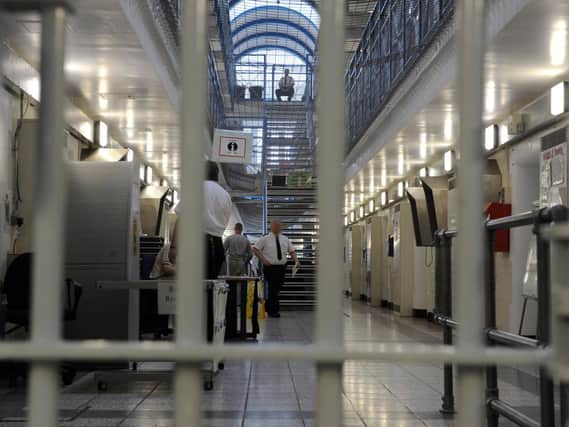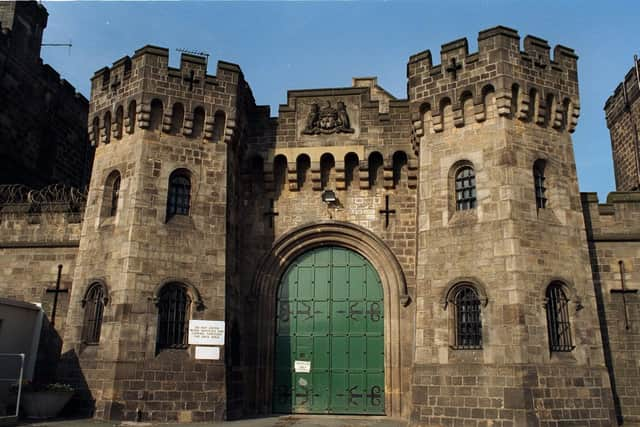Coroner to file report after inquest hears how HMP Leeds prisoner took his own life


Jurors at Wakefield Coroners Court heard evidence about the events leading to the self-inflicted death of Chris Beardshaw, an inmate at the prison in Armley.
The 37-year-old had been on remand for four months and was moved into the segregation unit on the day he died in December 2013.
Advertisement
Hide AdAdvertisement
Hide AdHe complained about poor conditions and the smell of excrement in the cell he was placed in, but staff decided conditions were satisfactory and did not move him.


After becoming distressed, he made around 40 cuts to his arm using the plastic knife provided for his meal.
Staff did take measures to address safety concerns, opening an Assessment, Care in Custody and Teamwork (ACCT) Review to note concerns about his mental health.
They also removed furniture and replacing his clothes with what officers believed was anti-tear clothing.
Advertisement
Hide AdAdvertisement
Hide AdBut the measures failed to stop Mr Beardshaw taking his own life, something his family believe was completely avoidable.


In a statement issued today, they said: "Chris was so optimistic and working hard to get his life on track. We do not believe he wanted to die; he just wanted someone to listen to him, it was a cry for help.
"After listening to three weeks of evidence we believe that there were failings in Chris’s care and we hope that the prison acts upon those issues brought to light in the inquest to prevent other families experiencing the heartache we have.”
Mr Beardshaw's death came just five months after that of Matthew Stubbs, who also died in the segregation unit.
Advertisement
Hide AdAdvertisement
Hide AdThere have been a further 10 self-inflicted deaths at the prison since Mr Beardshaw died on December 30, 2013.
It is second highest rate in any prison in England and Wales, with only HMP Woodhill recording a higher number.
At the conclusion of the inquest yesterday, the jury returned a narrative verdict setting out the sequence of events leading up to Mr Beardshaw's death.
They said adequate steps were not taken to monitor Mr Beardshaw and concluded that staff were not properly trained.
Advertisement
Hide AdAdvertisement
Hide AdCriticisms were made about the quality of the ACCT observations and communication between officers.
It was also confirmed that one prison officer had not carried out an observation, despite recording it in the paperwork.
HM Area Coroner Jonathan Leach said that he would be making a Prevention of Future Deaths report due to concerns in this case, noting in particular an absence of guidance on placing someone in segregation under exceptional circumstances.
Mr Beardshaw's family were supported throughout the hearing by Minton Morrill Solicitors and INQUEST, a charity which focuses on the issue of deaths in custody.
Advertisement
Hide AdAdvertisement
Hide AdDeborah Coles, director of INQUEST, said the jury's verdict added to ongoing concerns about a lack of mental health training in prisons, and the high level of self-inflicted deaths in HMP Leeds and other institutions.
She said: “HMP Leeds has one of the highest rates of self-inflicted deaths in the country, so efforts to effect real change must be made urgently before we see yet more preventable deaths.”
A Ministry of Justice spokesman said: "“This is a tragic case and our thoughts are with Chris Beardshaw’s family and friends.
“The safety and welfare of people within our custody is our top priority but we recognise that there were significant failings in his care.
“We will carefully consider the findings of the inquest, and make sure all necessary measures are in place to better support offenders.”